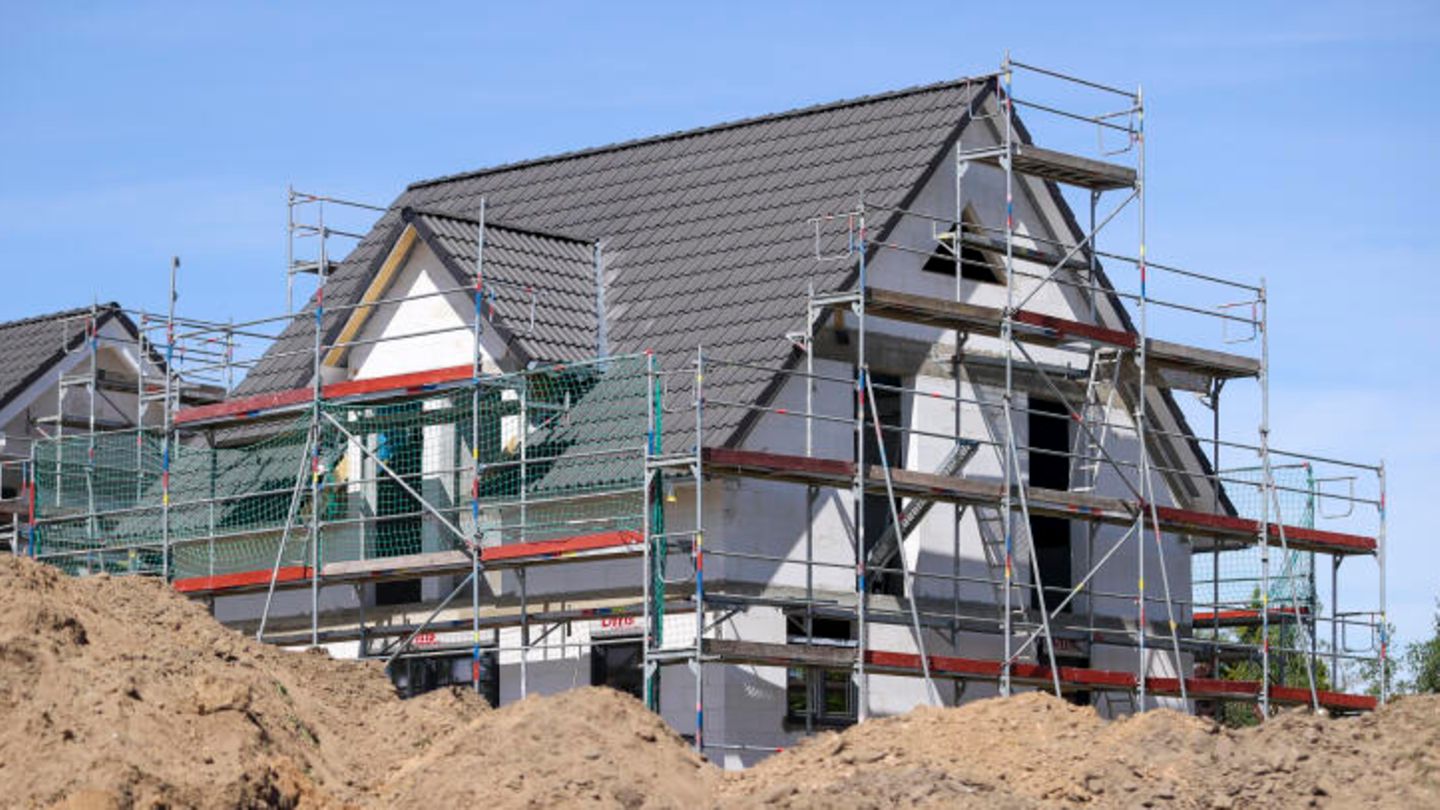The Rhineland-Palatinate Finance Court has ruled in favor of taxpayers in two cases regarding the property tax value assessment. The reform therefore does not waver for the time being.
It is the continuation of a dispute that has been simmering for years – and which has the potential to literally block justice for the next few years: property owners all over the country are objecting to their property tax assessments, also because associations have aggressively called on them to do so. Now the Rhineland-Palatinate Finance Court, located in the tranquil Neustadt an der Weinstrasse, has decided in two cases – initially in favor of the taxpayers. The judges gave in two Interim legal protection proceedings the applications of citizens. They had complained about their property tax valuation notices to their respective tax office (Ref. 4 V 1295/23 and 4 V 1429/23).
The court decided at the end of November that the assessment by the tax office in both cases ““due to serious doubts about the legality”. After examining the applications, there were doubts “both about the legality of the individual decisions and about the constitutionality of the underlying assessment rules,” according to the report Tax Court in his justification. The notices are therefore not legally binding until further notice.
It is the first time that taxpayers have brought their objections to the valuation according to the so-called federal model before a tax court in a federal state. This fact makes the decision from Neustadt so exciting, even though it is not a verdict. The judges decided neither on a lawsuit nor on the general legality of the lawsuit Property tax. Only the Federal Finance Court, Germany’s highest tax court, can determine the latter. He would then have to refer a corresponding case to the Federal Constitutional Court in Karlsruhe, which would make the final decision on whether it is constitutional.
Urgent application against property tax reform by Olaf Scholz
Nevertheless, the decision is likely Neustadt in Berlin and especially in the Chancellery: Rhineland-Palatinate is one of eleven federal states in which this same federal model applies. It was devised by the current Federal Chancellor and then Finance Minister Olaf Scholz (SPD). Tax experts criticized it early on as being particularly complicated. Five federal states therefore decided to enact their own property tax law or to change the federal model.
What is particularly controversial in both cases before the Neustädter Court are the valuation rules on which the property tax is based. Property tax is calculated using a three-stage process. As part of the property tax reform, the values in stage one are changing: The tax offices initially evaluate the returns submitted and the newly determined ones Land guidelines the properties. This results in the so-called property tax value, for which many have already received a notice from their tax office. In stage two, this property tax value is multiplied by the so-called tax measurement amount; Finally, the municipalities apply their respective assessment rate to the product and send the final tax assessments.
The Rhineland-Palatinate Finance Court has doubts about these standard land values: It is not clear whether these “rwere genuine”. The judges had “serious concerns about the legally required independence of the Rhineland-Palatinate expert committees” which determine the standard land values. The possibility of exerting influence cannot be ruled out.
Property tax models are controversial among tax lawyers
The parameters for calculating property tax are also controversial among tax lawyers – as is the entire design of the property tax reform. Lobby associations such as Haus & Grund and the Taxpayers’ Association are heavily involved. For example, you commissioned a report from the well-known lawyer Gregor Kirchhof. The paper is intended to serve as an argumentative basis for model lawsuits that the two associations want to bring to court in several federal states.
churchyard, who holds the chair for public law, financial law and tax law at Augsburg, comes to the conclusion in its report that the federal model is unlawful. He calls iA total of ten points, including the standard land value: Kirchhof considers this to be problematic because the values show “systematic assessment deficiencies” and are “sometimes hardly comparable”. The value is based on the property purchase prices in a municipality and the statistical net rent. The report sees a risk here that the strict application of the standard land value will violate the principle of equality in the Basic Law.
Lawyer Henning Tappe from the University of Trier, however, believes the federal property tax model is constitutional. The Professor of public law as well as German and international financial and tax law admits that dThe typification of a property in the federal model goes “quite far”. Nevertheless, he does not believe in the demand from lobby associations and his colleague Kirchhof that states with the federal model should now switch to a different tax model. “In the federal model, too, there are injustices in individual cases – as with any typification – but all in all probably fewer than in pure area models that other states have opted for,” said Tappe.
In order to better take the special nature of properties into account when valuing them, Tappe believes it is conceivable to allow counter-evidence from experts in individual cases. So if owners have a reasonable disagreement with the tax office about the value of their property, they could consult an expert.
While experts, lobbyists and politicians argue, the tax offices are processing the property tax returns received piece by piece. It was not uncommon for employees to be taken away from other tasks and the administrative effort was huge. A total of 36 million properties need to be revalued. The tax offices have to be finished with their work by 2024, because then the municipalities may have to adjust their assessment rates – so that they can send taxpayers their notices towards the end of 2024. The new property tax will be levied from January 1, 2025.
Note: This article first appeared on
Source: Stern




